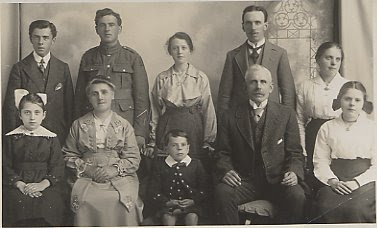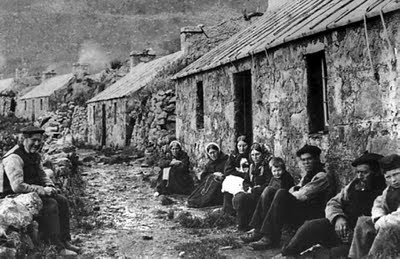Today's Post brings this series to an end.
It will be replaced next week end by
PICTURES TO PLEASE
No.8
This surprise visitor
was arranged by the office girls
on my 60th birthday
-o0o-
I don't know when or where the following poem was written, but, when I was a small boy, there were so few motor vehicles in our town that it was perfectly safe to walk in the middle of the main street.
THE PEDESTRIAN'S PLAINT
Edward Verrall Lucas 1868-1938
Will there never come a season
Which shall rid us from the curse
Of a speed which knows no reason,
And the too contiguous hearse;
When no longer shall we tremble
As the motors leave their lair;
Meekly by the kerb assemble
While the klaxon rends the air -
When the gladsome news will nerve us
That the petrol-wells are dry
And the horse again must serve us,
Safe and sure and stepping high?
That will be a day for fiddling,
Fun and festival galore,
When the Armstrongs cease from siddling
And the Royces roll no more!
(The last two lines refer to the Rolls-Royce and Armstrong-Siddeley makes of cars)
Taken from the steeple of Kirkintilloch Parish Church - later renamed St. Mary’s, this photo looks down on the old wooden bascule bridge over the Forth and Clyde Canal.
Whenever a boat had to pass through, the bridge was raised by means of a wheel turned by hand and this was done by the bridge-keeper. I remember when it was replaced by steel swing bridge in 1933.
In the years after the Second World War there was a huge increase in the number of vehicles on the road, and the opening and closing of the bridge for canal traffic created serious hold-ups. In 1967 a proper road bridge was built on an embankment, but this completely closed the canal at that point, resulting in a great deal of rubbish gathering in the water on both sides.
Many folk campaigned to have the whole length of the canal re-opened, and this happy result came about in 2001.
There is now a Marina not far from the bridge and Kirkintilloch is claiming to be “The Canal Capital of Scotland.”
-o0o-
I’m sorry. We’re not available just now. Please leave your message after the tone.
If you are one of our children, press 1, then select an option.
If you need us to baby-sit, press 2.
If you want to borrow the car, press 3.
If you want us to do your washing and ironing, press 4.
If you want the grandchildren to sleep here tonight, press 5.
If you want us to pick up the children from school, press 6.
If you want to eat here, press 7.
If you need money, press 8.
If you want to invite us to dinner, we’re listening.
-o0o-
The Scottish thistle has been the emblem of Scotland since the reign of Alexander III in the 13th century.
The story of how this humble plant acquired such an honour goes back to the feuding between Scotland and Norway. It’s said that one dark night an invading army of King Haakon’s men were stealing up on a camp of Scots, hoping to surprise them. One of the Norwegians in his bare feet stepped on a thistle and let out a cry of pain. This alerted the Scots and the attack was repelled.
In 1470, when James III was on the throne, the thistle appeared on Scottish silver coins.
It seems that not everyone admires the Scotch thistle. In some parts of America it has been declared Public Nuisance No.1 and was said to be “an noxious and annoying little Scottish weed.”
I suppose it was natural that bad feelings against the Germans would continue after the war. I remember that my parents were very unhappy when I agreed to play the piano for a German violinist at a social evening in Glasgow. He worked as a store man in Copeland and Lye’s, and had been introduced to me by a friend. He had very little English and, as I had no German, I didn't learn anything about his background. Didn't it occur to my parents that he might have been a refugee, perhaps a Jewish refugee?
-o0o-
-o0o-
-o0o-






































